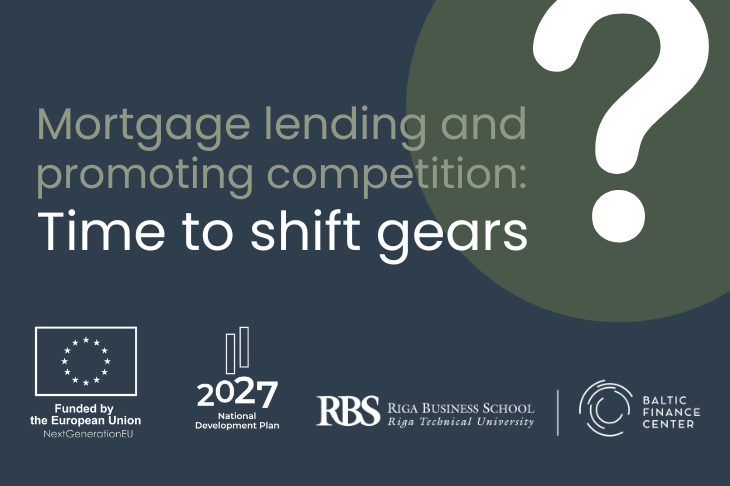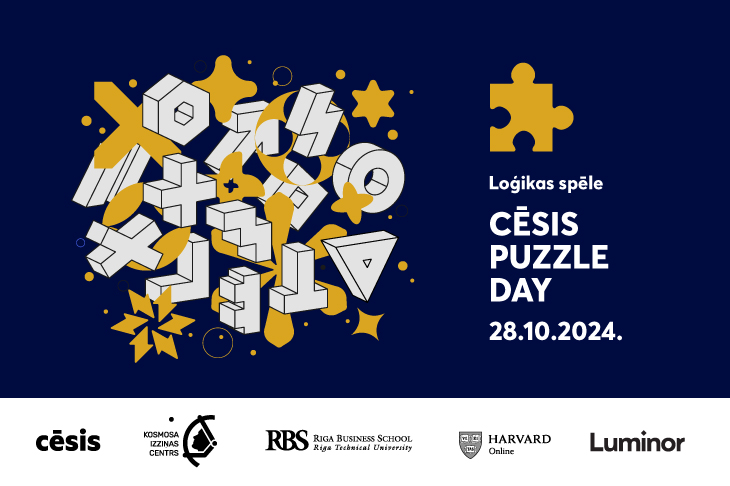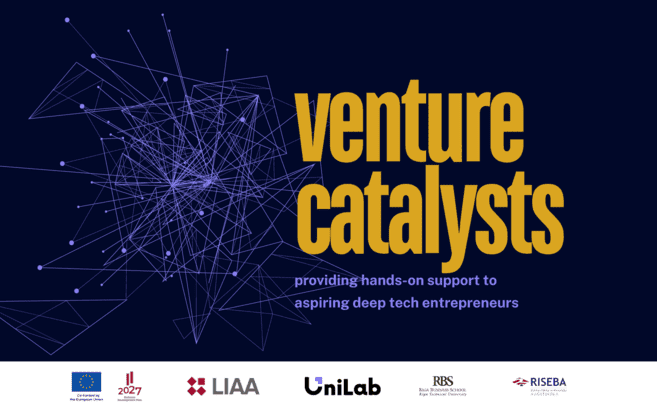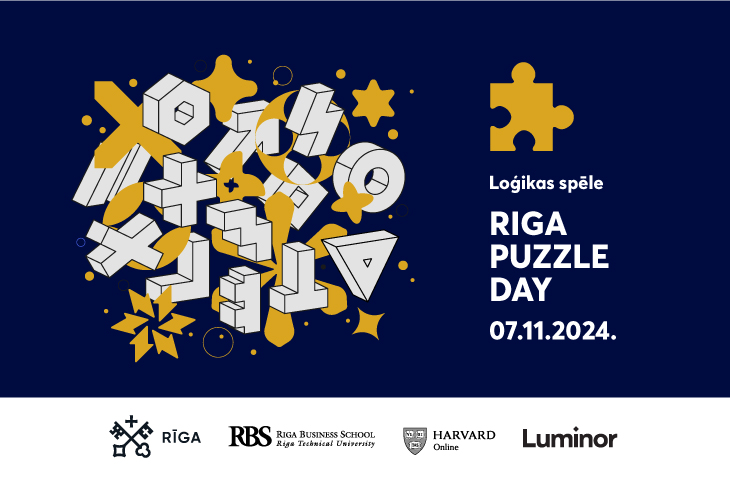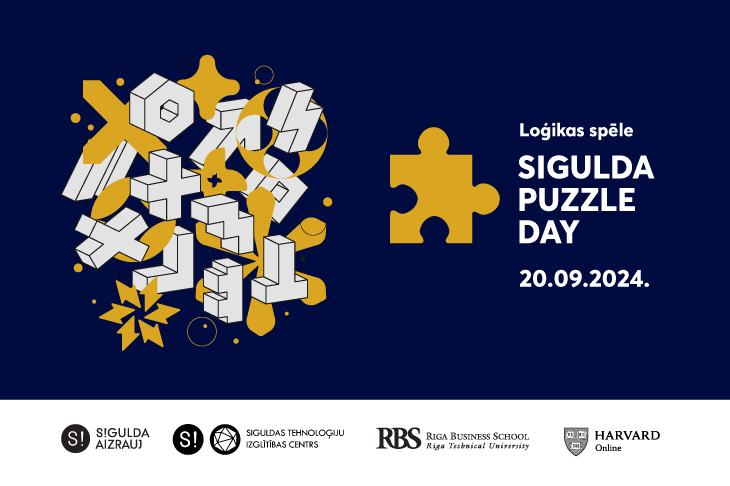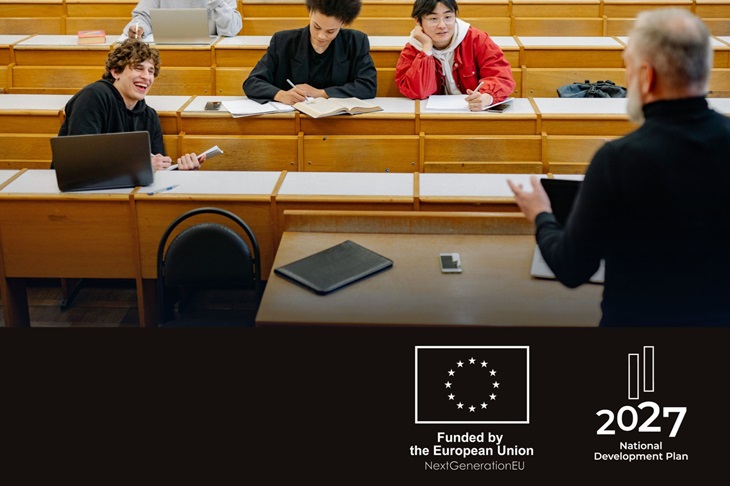On Friday, April 21st, the Advisory Board under the supervision of Riga Business School approved 56 representatives from higher education institutions as well as businesses, and government officials to participate in the Leadership Program, which consists of two subprograms aimed at education innovations. At the same time, the Advisory Board approved six education innovation projects for further development, led by 18 representatives from Latvian universities. Both initiatives are aimed at creating contemporary education processes, governance, and effective changes in Latvia, with solutions developed in collaboration with MIT, which is among the world’s top universities.
Both of the Leader Programs, and the Educational Innovation Project Support Program are administered by the Education Innovation Laboratory, established earlier this year and led by Riga Business School as a structural unit of Riga Technical University in collaboration with MIT J-WEL laboratory. The Ministry of Education and Science is the financier of this project.
These programs will allow 74 leaders of Latvian education, public administration, and business to gain new competencies, learn from examples of best practices abroad, and receive expert support in implementing their ideas in Latvia. “The large number of participants is evidence that Latvia has many determined professionals who are ready to work actively to strengthen the quality of education and significantly improve the culture of education governance and development,” emphasizes Santa Šmīdlere, Deputy State Secretary of the Ministry of Education and Science.
The Leader Program provides an opportunity for leaders in higher education and organizational management to learn about effective innovation structuring, governance, financing, and stakeholder interaction.
As part of the program, participants will take online courses on EdX, participate in online seminars and workshops organized by MIT J-WEL on building innovation ecosystems and educational leadership, engage in internal discussions and forums of the program, exchange experiences, and visit MIT in Boston, USA. Before the visit, participants will set their work objectives and attend preparation sessions to make the most effective use of consultations with specifically selected MIT experts and get the most out of on-site workshops.
The leadership program is divided into two separate sub-programs. Participants of the Ecosystem Innovation Project Management Group will implement specific projects, while the Strategic Ecosystem Management Group will focus on the overall education ecosystem and strategy formation.
These participants are accepted in the Ecosystem Innovation Project Management Program:
• Aivars Līpenītis, ENRIGA
• Anda Ķīvīte-Urtāne, Riga Stradins University
• Anita Krūmiņa, Central Finance and Contracts Agency
• Dace Siliņa, Latvia University of Life Sciences and Technologies
• Dace Vanaga, Investment and Development Agency of Latvia
• Dmitrijs Homenko, State Police College
• Ennata Kivriņa, BA School of Business and Finance
• Ieva Puzo, Riga Stradins University
• Irēna Beinaroviča-Litvinova, Rezekne Academy of Technologies
• Jānis Innus, BA School of Business and Finance
• Jurijs Iljins, Riga Technical University
• Karīna Palkova, Riga Stradins University
• Kristīne Niedre-Lathere, Liepaja Education Board
• Linda Daniela, University of Latvia
• Māris Gailis, Riga Technical University
• Nikita Kazakēvičš, Investment and Development Agency of Latvia
• Sandra Muižniece- Brašova, Latvia University of Life Sciences and Technologies
• Svetlana Mjakuškina, State Construction Control Bureau
• Vita Narnicka, State Land Service
• Vjačeslavs Bobrovs, Riga Technical University
These participants are accepted in the Strategic Ecosystem Management Program:
• Agrita Kiopa, Riga Stradins University
• Aiga Balode, Ministry of Health
• Andrii Shekhirev, Biocatalyst
• Andris Sarnovičs, University of Latvia
• Anita Straujuma, Riga Technical University
• Armands Vekšins, Latvia University of Life Sciences and Technologies
• Artūrs Bukonts, Latvia University of Life Sciences and Technologies
• Atis Zvidriņš, ALTUM
• Dins Šmits, Riga Stradins University
• Edvīns Balševics, Ministry of Environmental Protection and Regional Development
• Elīna Lidere, Latvijas Mobilais Telefons
• Ieva Lībķena, State Chancellery
• Igors Bercovičs, Biocatalyst
• Ilze Saleniece, Ministry of Education and Science
• Inga Ciproviča, Latvia University of Life Sciences and Technologies
• Irina Pilvere, Latvia University of Life Sciences and Technologies
• Iveta Mietule, Rēzeknes Tehnoloģiju akadēmija
• Jānis Grabis, Riga Technical University
• Jānis Citskovskis, State Chancellery
• Kaspars Āboliņš, Ministry of Internal Affairs
• Kaspars Rožkalns, Investment and Development Agency of Latvia
• Līga Peiseniece, BA School of Business and Finance
• Linda Helmane, Foreign Investors Council in Latvia
• Māris Būmanis, Latvijas Finieris
• Mārīte Seile, University of Latvia
• Mārtiņš Bičevskis, BA School of Business and Finance
• Mārtiņš Brencis, University of Latvia
• Raivis Kronbergs, Ministry of Agriculture
• Rolando H. Delgado, MGI
• Signe Bāliņa, Information & Communications Technology Association
• Tālis Juhna, Riga Technical University
• Valts Ābols, Children’s Clinical University Hospital
• Voldemārs Brēdiķis, Rezekne Academy of Technologies
• Zaiga Liepiņa, Ministry of Economics
• Zane Čulkstēna, ERDA
Talis Juhna, the rector of Riga Technical University and a participant of the Strategic Ecosystem Management Program: “MIT is one of the leading science universities in the world. One of the reasons for their success is the university’s management model, which is focused on excellence in science, studies, and innovation. As I take on the role of rector, RTU is entering a new phase of development, and through the leadership program offered by MIT, I hope to gain new experience in guiding RTU towards becoming a world-class science university.”
The Strategic Education Innovation Project Support Program is designed to support the implementation of large, ambitious education innovation projects in Latvian higher education institutions in one of three thematic areas: systematic improvements in student experience, improvements in collaboration between universities and organizations, and/or initiatives that promote the achievement of strategic goals of the university.
As a part of the program, participants will receive consultations from MIT experts, mentoring support for innovation and change implementation, support in project planning, and content development according to the project plan. They will also participate in workshops as well as networking and experience exchange events. Team members will have the opportunity to go to individually tailored experience exchange and learning visit to MIT in Boston, USA.
These projects are accepted in the Strategic Education Innovation Project Support Program:
• Innovation and Digital Skills Development Lab, Riga Technical University
• Establishing a modern and sustainable environment for education and innovation at the Healthcare Advancement Center, Riga Technical University and Children’s Clinical University Hospital
• Digital platform of the unified skills monitoring system of Rīga Stradiņš University and Latvian medical institutions, Rīga Stradiņš University
• SOS Health Communications, Rīga Stradiņš University
• Enhancing doctoral program and providing a platform for industrial collaboration to apply innovative ideas under the new doctoral program model, University of Latvia
• Hybrid education strategy as basis for future universities, Latvia University of Life Sciences and Technologies
Janis Grevins, Director of Riga Business School: “Thank you to the Ministry of Education and Science for the mandate given to Riga Business School to continue providing education innovation in Latvia utilizing the best global experience. With the help of The Education Innovation Lab, we have the opportunity to familiarize ourselves with, learn from, and collaborate with those involved in education innovation in a qualitative and comprehensive manner.”
The program will be launched on May 19th of this year. The Education Innovation Lab invites all interested parties to attend the open lecture at 12:00 in the Conference Center of the National Library of Latvia, led by experts from MIT, and take the opportunity to network with program participants and MIT guests. More information about the lecture will be available on the innovationeducation.lv website and Riga Business School’s social media.
MIT J-WEL is an education laboratory affiliated with the Massachusetts Institute of Technology, one of the world’s top universities (ranked 1st in the QS World University Ranking 2023), with the aim of strengthening collaboration with other universities in the world and promoting excellence and transformation in education worldwide.
The project is funded by the European Regional Development Fund (ERDF) within the project No. 1.1.1.5/18/I/008 “Support for RTU International Cooperation Projects in Research and Innovation”.
More about the Education Innovation Lab and its programs: https://innovationeducation.lv/par-mit-projektu/

